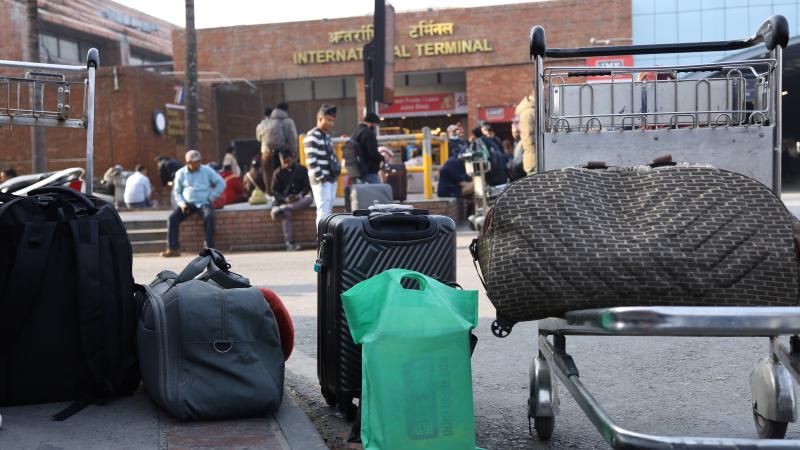Biden Pentagon let 50 Afghans posing serious security risks into the United States, watchdog finds
At least 28 Afghan refugees with "derogatory information" cannot be located, DOD IG warns.
The Biden administration failed to use all available screening data to vet Afghan refugees brought to the United States last year, allowing at least 50 individuals posing "potentially significant security concerns" to make it inside America's borders, the Pentagon's chief watchdog is warning.
To make matters worse, the Defense Department inspector general reported to Congress this week that 28 of 31 Afghan evacuees with known "derogatory information" can no longer be located.
"Not being able to locate Afghan evacuees with derogatory information quickly and accurately could pose a security risk to the United States," the inspector general said. "In addition, the U.S. Government could mistakenly grant ineligible Afghan evacuees with derogatory information" parole into the country.
In a footnote, the inspector general cited the potentially dangerous nature of the 50 refugees posing significant security risks.
"Significant security concerns include individuals whose latent fingerprints have been found on improvised explosive devices and known or suspected terrorists," the report warned.
The Pentagon report directly contradicts President Biden's promise last summer that no Afghans fleeing their country during the bungled U.S. exit would be allowed into United States until they had been aggressively vetted.
"We are conducting thorough ... security screening for everyone who is not a U.S. citizen or a lawful permanent resident," the president said at the time. "Anyone arriving in the United States will have undergone a background check."
But the inspector general cited a series of bureaucratic blunders that kept the Pentagon from fully vetting Afghan refugees who made their way into the continental United States (CONUS).
"We found that Afghan evacuees were not vetted by the National Counter‑Terrorism Center (NCTC) using all DoD data prior to arriving in CONUS," the report said.
"This occurred," the IG explained, "because Customs and Border Patrol (CBP) enrollments were compared against the Department of Homeland Security (DHS) Automated Biometric Identification System (IDENT) data, which did not initially include all biometric data located in the DoD Automated Biometric Identification System (ABIS) database and because the DoD's National Ground Intelligence Center (NGIC) has agreements with foreign partners that prohibits the sharing of some ABIS data with U.S. agencies outside of the DoD."














